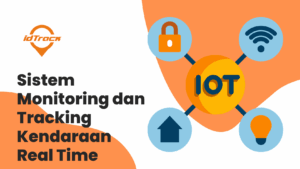GPS servers have become an indispensable part of modern business operations, offering precise location data that can be invaluable for fleet management, asset protection, and other applications. However, this data’s value also makes it a prime target for malicious actors. In this beginner’s guide, we’ll delve into the crucial topic of GPS server security, exploring why it’s essential and how to protect your location data from vulnerabilities and breaches.
Understanding the Significance of GPS Server Security
The Value of Location Data
Location data collected through GPS servers is more than just a set of coordinates. It’s a goldmine of information that can reveal critical insights about your business operations, asset locations, and even personal data in the case of personal GPS devices. This information is valuable not only to you but potentially to those with malicious intent.
Understanding the significance of location data is the first step toward realizing the importance of GPS server security.
The Evolution of GPS Server Security
Historical Perspective
To appreciate the current state of GPS server security, it’s essential to explore its history. In the early days of GPS technology, security concerns were relatively minimal. GPS signals were freely accessible and had limited encryption.
However, as GPS technology evolved and became more integrated into various industries, including defense, the need for enhanced security became evident. This led to the development of advanced security measures to protect GPS signals from interference and manipulation.
Common Threats to GPS Server Security
Identifying Vulnerabilities
GPS server security faces various threats, including:
- Signal Jamming: Malicious actors can use signal jammers to disrupt GPS signals, affecting the accuracy and reliability of location data.
- Spoofing: Spoofing involves broadcasting false GPS signals to deceive GPS receivers into providing incorrect location data.
- Data Interception: Unencrypted GPS data can be intercepted and exploited by cybercriminals, compromising location privacy.
- Physical Attacks: Physical tampering with GPS devices can lead to unauthorized data access or control.
Recognizing these vulnerabilities is essential for designing a robust security strategy.
Strategies to Enhance GPS Server Security
Protecting Your Data
To safeguard your location data, consider the following security strategies:
- Signal Encryption: Employ encryption techniques to secure GPS signals, making it difficult for malicious actors to intercept and manipulate the data.
- Multi-Factor Authentication: Implement multi-factor authentication for accessing GPS server systems to ensure only authorized personnel can access sensitive data.
- Physical Security: Secure GPS devices and servers physically to prevent unauthorized access or tampering.
- Regular Updates: Keep your GPS server software and firmware up to date to patch security vulnerabilities and stay ahead of potential threats.
- User Training: Educate your team about security best practices to prevent unintentional data exposure or breaches.
Future Trends in GPS Server Security
Innovations and Expectations
The landscape of GPS server security is continually evolving to stay ahead of emerging threats. Some of the innovations and trends expected in the future include:
- Blockchain Integration: The use of blockchain technology for secure and tamper-proof storage of GPS data.
- Machine Learning for Threat Detection: Utilizing machine learning algorithms to identify and respond to security threats in real time.
- Secure IoT Integration: Enhancing GPS server security in the context of the Internet of Things (IoT) for applications like autonomous vehicles and asset tracking.
- Global Collaboration: Cooperation between nations and organizations to develop international standards for GPS security.
As technology advances, the security of GPS servers will become even more critical, and staying updated with these trends can help you proactively protect your data.
Ensuring Compliance
Legal and Ethical Considerations
In addition to technological security measures, businesses must also consider legal and ethical aspects of GPS data. Compliance with privacy regulations and ethical data use practices is vital. Ensure your GPS data collection and storage align with local and international laws.
GPS server security is an essential aspect of managing and protecting location data. As GPS technology continues to evolve and integrate into various industries, the need for robust security measures becomes more critical than ever. By understanding the value of location data, recognizing common threats, and implementing effective security strategies, you can safeguard your business and personal information from vulnerabilities and breaches.
The future of GPS server security promises innovative solutions to combat evolving threats. Staying informed and proactive in enhancing security will help you keep your GPS data safe and maintain the integrity of your operations.
If you have questions or need further guidance on GPS server security, please don’t hesitate to reach out. We’re here to assist you in protecting your valuable location data.













Leave a Comment